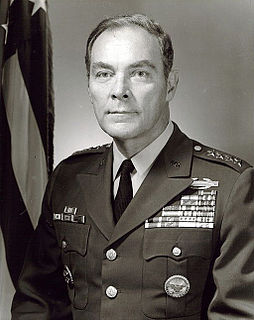A Quote by Michael Ledeen
Like Afghanistan before it, Iraq is only one theater in a regional war. We were attacked by a network of terrorist organizations supported by several countries, of whom the most important were Iran, Iraq, Syria, and Saudi Arabia.
Related Quotes
If I look at the really important questions in [Middle East] region, I see Iran, where there is a strong desire for a freer society and where people are repressed by a small group of ayatollahs. I see Syria, where we can see a similar desire of the people to be free. These two countries fund Hezbollah and other terrorist organizations and are hurting our efforts in Afghanistan and have been extremely harmful in Iraq. Then I also see large, important countries such as Egypt and Saudi Arabia.
After the revolution of 1979, Iran embarked on a policy of sectarianism. Iran began a policy of expanding its revolution, of interfering with the affairs of its neighbors, a policy of assassinating diplomats and of attacking embassies. Iran is responsible for a number of terrorist attacks in the Kingdom, it is responsible for smuggling explosives and drugs into Saudi Arabia. And Iran is responsible for setting up sectarian militias in Iraq, Pakistan, Afghanistan and Yemen, whose objective is to destabilize those countries.
After Iraq, there's been Libya, there's Syria, and the rhetoric of, you know, democracy versus radical Islam. When you look at the countries that were attacked, none of them were Wahhabi Islamic fundamentalist countries. Those ones are supported, financed by the U.S., so there is a real collusion between radical Islam and capitalism. What is going on is really a different kind of battle.
Countries such as Iraq, Iran, Libya and Syria, which support terrorist organizations and use terror to achieve their objectives, are precisely the same countries working tirelessly to acquire weapons of mass destruction. This combination creates a new dimension to the threat on our way of life in the 21st century.
Sadly, a U.S. invasion of Iraq 'would threaten the whole stability of the Middle East' - or so Amr Moussa, secretary-general of the Arab League, told the BBC on Tuesday. Amr's talking points are so Sept. 10: It's supposed to destabilize the Middle East. The stability of the Middle East is unique in the non-democratic world and it's the lack of change in Iraq, Iran, Saudi Arabia, Syria, Egypt that's turned them into a fetid swamp of terrorist bottom-feeders.
If you want peace and well-being to be in place in the Middle East and you want terrorism to be uprooted, then there's no path other than the presence of the Islamic Republic of Iran, you saw that in Iraq, Syria, Lebanon and Yemen that the power that was able to help the people of Iraq, Syria, Lebanon and Yemen in the face of terrorist groups was the Islamic Republic of Iran.
When George W.Bush attacked Afghanistan, it was widely hailed, and the failure of our war there wasn't understood. Within a few months of attacking Afghanistan, Bush clearly moved on to get ready for Iraq, long before Osama bin Laden or Al Qaeda were dispensed with. There was never any serious debate in the press about whether even the notion that every Taliban was our enemy was valid. A lot of assumptions about that war were never challenged.





































